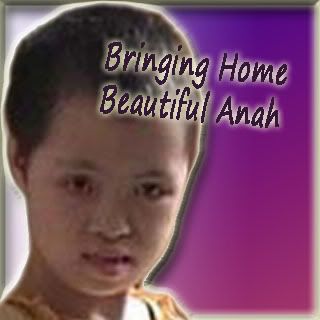DCC is a structural abnormality of the brain.
According to http://www.nodcc.org/ (The National Organization for Disorders of the Corpus Callosum):
"What is the Corpus Callosum?
The corpus callosum (call ō sum) is the largest connective pathway in a human brain. It is made of more than 200 million nerve fibers that connect the left and right sides (hemispheres) of the brain.
If we cut a brain in half down the middle, we would also cut through the fibers of the corpus callosum. When looking at the middle side of one half of the brain, for example, in magnetic resonance imaging (MRI), the corpus callosum looks like a cross-section of a mushroom cap at the center of the brain."
"Characteristics :
Physically, complete ACC is a condition that does not change. It will not get worse. Since the corpus callosum is already absent, it cannot regenerate or degenerate. Likewise, in partial ACC and hypoplasia, once the infant's brain is developed, no new callosal fibers will emerge.
In that sense, disorders of the corpus callosum are conditions one must "learn to live with" rather than "hope to recover from." Long-term challenges are associated with malformation of the corpus callosum, but this in no way suggests that individuals with DCC cannot lead productive and meaningful lives.
What are the common developmental problems that may occur with disorders of the corpus callosum?
Behaviorally individuals with DCC may fall behind their peers in social and problem solving skills in elementary school or as they approach adolescence. In typical development, the fibers of the corpus callosum become more efficient as children approach adolescence. At that point children with an intact corpus callosum show rapid gains in abstract reasoning, problem solving, and social comprehension. Although a child with DCC may have kept up with his or her peers until this age, as the peer-group begins to make use of an increasingly efficient corpus callosum, the child with DCC falls behind in mental and social functioning. In this way, the behavioral challenges for individuals with DCC may become more evident as they grow into adolescence and young adulthood.
Behavioral Characteristics Related to DCC
This is an overview of the behavioral characteristics which are often evident in individuals with DCC.
Delays in attaining developmental milestones (for example, walking, talking, reading). Delays may range from very subtle to highly significant.
Clumsiness and poor motor coordination, particularly on skills that require coordination of left and right hands and feet (for example, swimming, bike riding, tying shoes, driving).
Atypical sensitivity to particular sensory cues (for example, food textures, certain types of touch) but often with a high tolerance to pain.
Difficulties on multidimensional tasks, such as using language in social situations (for example, jokes, metaphors), appropriate motor responses to visual information (for example, stepping on others' toes, handwriting runs off the page), and the use of complex reasoning, creativity and problem solving (for example, coping with math and science requirements in middle school and high school, budgeting).
Challenges with social interactions due to difficulty imagining potential consequences of behavior, being insensitive to the thoughts and feelings of others, and misunderstanding social cues (for example, being vulnerable to suggestion, gullible, and not recognizing emotions communicated by tone of voice).
Mental and social processing problems become more apparent with age, with problems particularly evident from junior high school into adulthood.
Limited insight into their own behavior, social problems, and mental challenges.
These symptoms occur in various combinations and severity. In many cases, they are attributed incorrectly to one or more of the following: personality traits, poor parenting, ADHD, Asperger's Syndrome, Nonverbal Learning Disability, specific learning disabilities, or psychiatric disorders. It is critical to note that these alternative conditions are diagnosed through behavioral observation. In contrast, DCC is a definite structural abnormality of the brain diagnosed by an MRI. These alternative behavioral diagnoses may, in some cases, represent a reasonable description of the behavior of a person with DCC. However, they misrepresent the cause of the behavior. "
Donations and Gifting
Saturday, June 14, 2008
Subscribe to:
Post Comments (Atom)
I Will Be With You Wherever You Go
I WILL BE WITH YOU WHEREVER YOU GO !
"Be strong and courageous. Do not be terrified; Do not be discouraged, for the Lord your God will be with you wherever you go." Joshua 1:9
"Be strong and courageous. Do not be terrified; Do not be discouraged, for the Lord your God will be with you wherever you go." Joshua 1:9
We have a heart for orphaned children, abandoned children, special needs children, parents of each of these children, adoption, Liberia, Ethiopia, Africa, and the Children in Need of Loving Homes around the World and our prayers are with each of them.





No comments:
Post a Comment